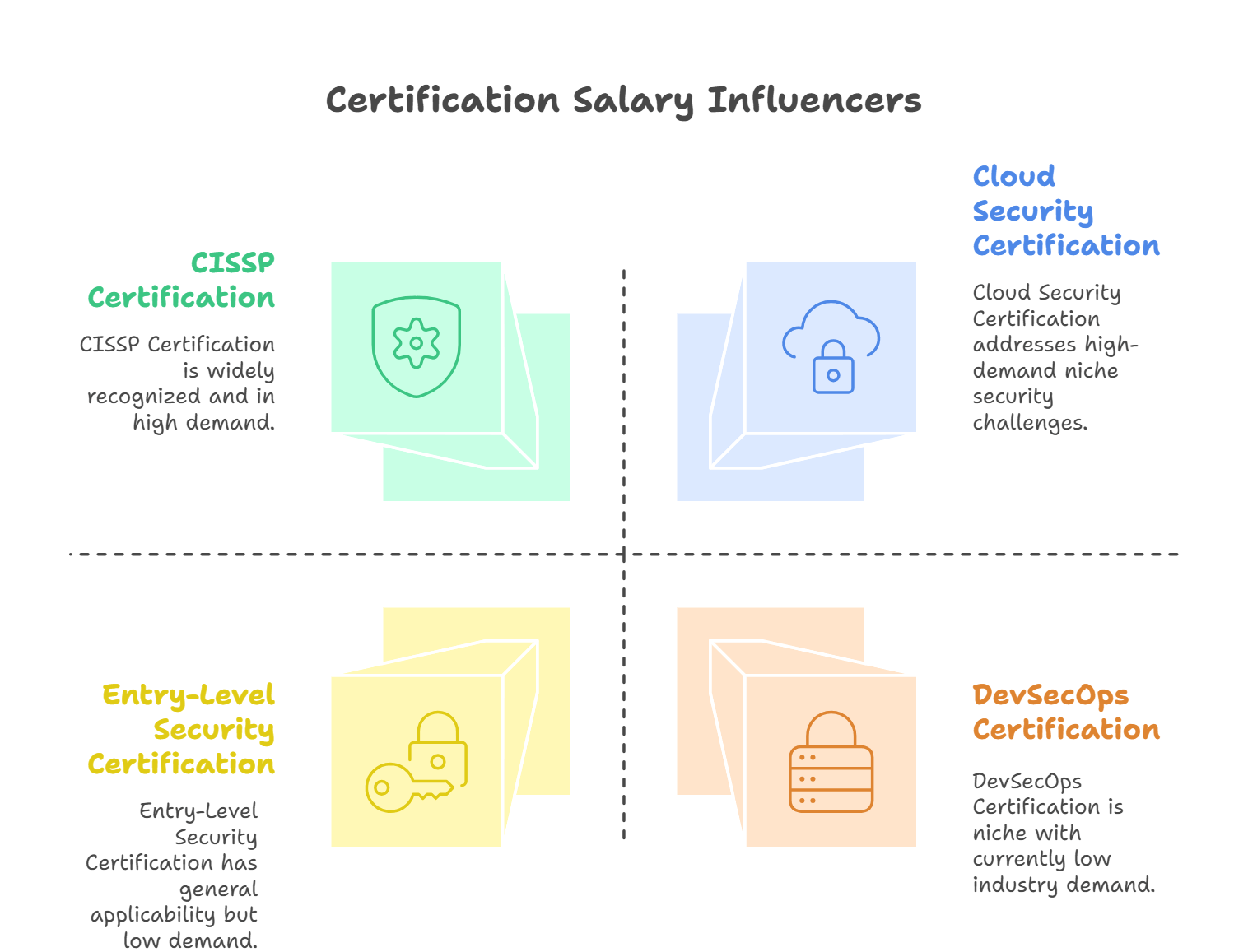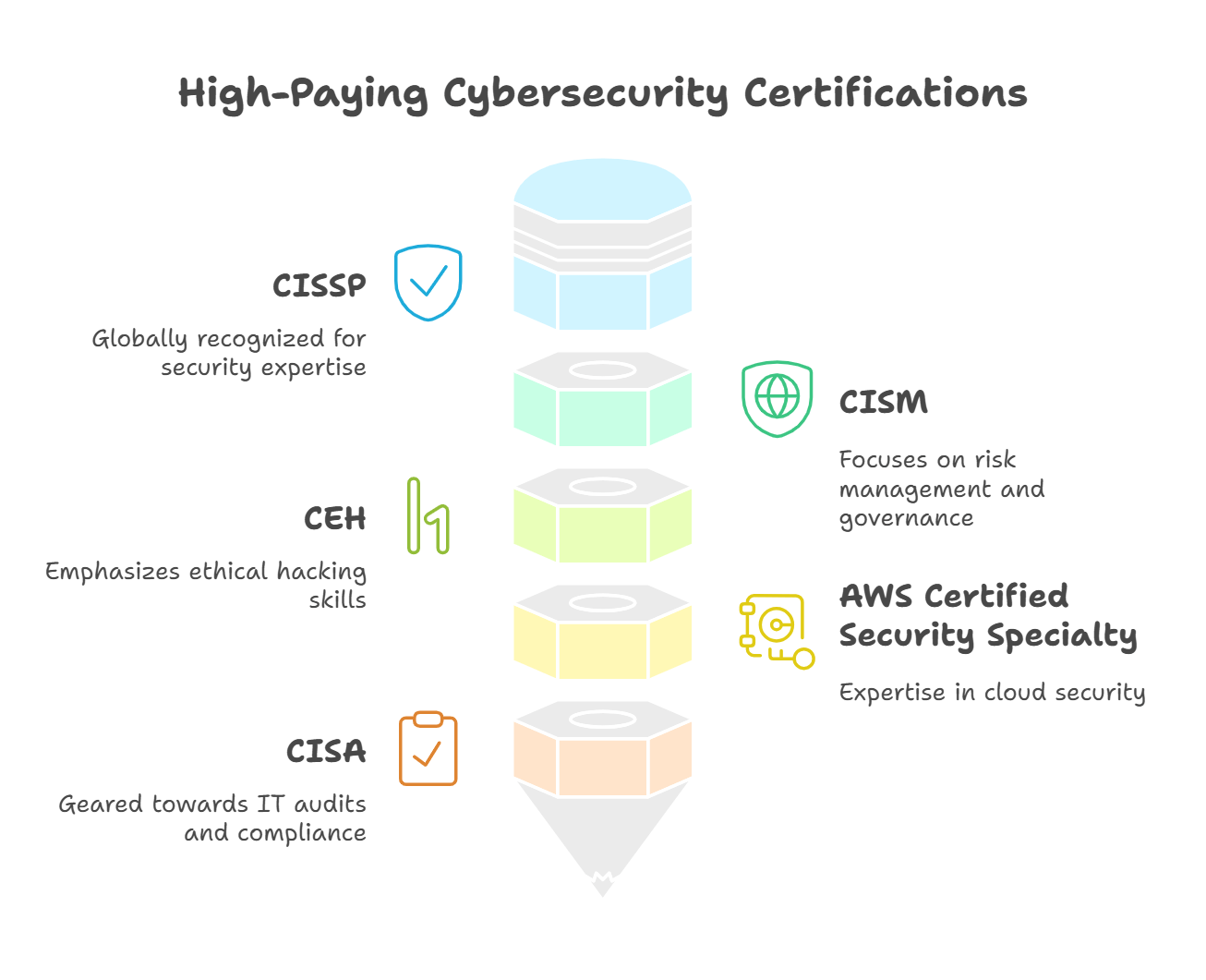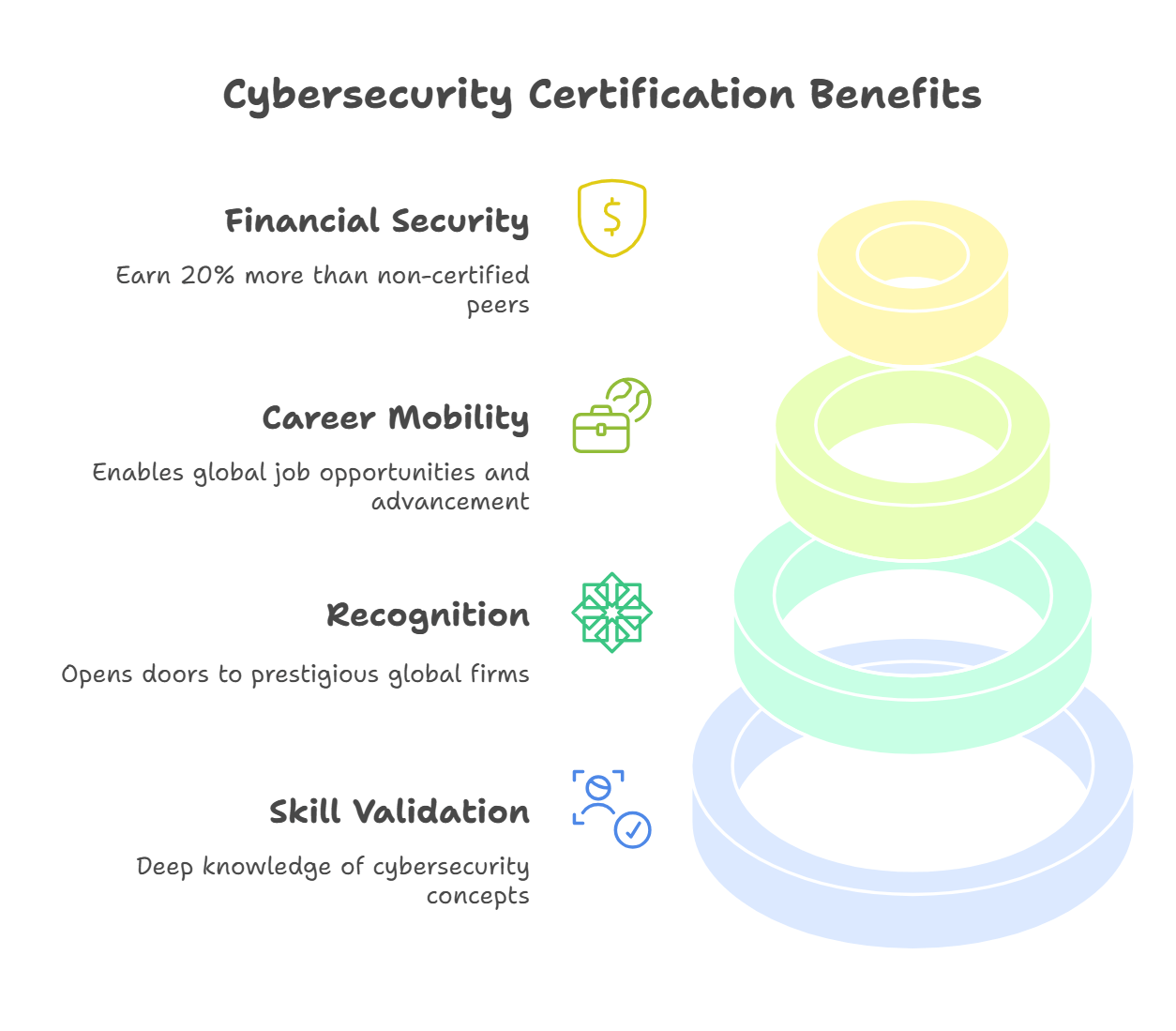Table of Contents
- Why the Right Cybersecurity Certification Matters
- Key Factors That Drive Certification Salaries
- Which Cybersecurity Certification Pays the Most?
- Emerging Certifications to Watch
- Benefits of High-Paying Cybersecurity Certifications
- Enhancing Your Certification Journey with ACSMI
- High-Paying Certifications at a Glance
- Final Thoughts
- (FAQs) Frequently Asked Questions
Cybersecurity is a field that offers substantial rewards. Organizations across the globe are scrambling to fortify their digital defenses, and they’re willing to pay top dollar for professionals with the right credentials. If you're considering a career in cybersecurity, you might be wondering, "Which cybersecurity certification pays the most?"
Not all cybersecurity certifications are equal in terms of career impact or salary potential. Some certifications cater to foundational roles, while others propel you into specialized or executive-level positions. Before pursuing a certification, it's essential to consider the Cybersecurity Certification Exam Cost, as it can vary depending on the certification level and provider. This guide explores everything you need to know about the certifications that pay the most, the factors that influence their value, and how to effectively prepare for them.
Why the Right Cybersecurity Certification Matters
Cybersecurity plays a critical role in innovation and governance in today’s interconnected world. Certified professionals are not only well-compensated but also indispensable to any organization. These certifications serve as clear validation of an individual’s skills, demonstrating expertise in problem-solving, compliance, and strategic defense measures.
When considering which cybersecurity certification pays the most, your earning potential will depend on several factors: the role you’re aiming for, the industry you’re in, and your experience level. Employers highly value certifications because they reduce training costs, mitigate risks, and align with global best practices.
Key Factors That Drive Certification Salaries

-
Specialization
Certifications in niche areas such as cloud security, penetration testing, or risk management tend to command higher salaries. These skills address critical organizational challenges, making them valuable assets to employers. -
Industry Demand
Certifications tied to globally recognized standards (e.g., CISSP or CISA) hold more weight due to their widespread applicability. Their value is enhanced by the rising demand for cybersecurity professionals across industries. -
Career Level
Entry-level certifications pave the way for positions like Security Analyst, while advanced certifications such as CISM or CISSP target managerial and leadership roles, commanding higher salaries. -
Relevance to Emerging Trends
Certifications in fields like DevSecOps or advanced cloud security (e.g., AWS Certified Security Specialty) pay more due to their focus on addressing futuristic cybersecurity challenges.
Which Cybersecurity Certification Pays the Most?
If you’re wondering "which cybersecurity certification pays the most," here are some top contenders based on data trends and industry feedback:

-
Certified Information Systems Security Professional (CISSP)
-
Average Salary: $135,000/year
-
Why It Stands Out: CISSP is globally recognized as the benchmark for information security expertise. It validates both technical knowledge and managerial skills, making it ideal for roles like Security Analyst, Security Manager, or CISO.
-
Who Benefits: Professionals seeking enterprise-level cybersecurity leadership or consultancy roles.
-
-
Certified Information Security Manager (CISM)
-
Average Salary: $130,000/year
-
Why It Stands Out: CISM is a premier credential for those focusing on risk management and governance. It emphasizes the strategic aspects of cybersecurity, making professionals capable of managing both technical teams and business-wide cybersecurity initiatives.
-
Who Benefits: Aspiring IT Directors, Senior Security Managers, and those looking to move into cybersecurity leadership roles.
-
-
Certified Ethical Hacker (CEH)
-
Average Salary: $115,000/year
-
Why It Stands Out: CEH focuses on offensive cybersecurity skills like penetration testing, ethical hacking, and vulnerability assessment. It’s a great choice for professionals interested in proactive security measures.
-
Who Benefits: Penetration Testers, Ethical Hackers, and organizations seeking to build proactive defense systems.
-
-
AWS Certified Security Specialty
-
Average Salary: $120,000/year
-
Why It Stands Out: Cloud security continues to rise as organizations move their data to cloud platforms. AWS certification demonstrates expertise in securing cloud environments, giving professionals a competitive edge.
-
Who Benefits: Cloud Security Engineers and System Administrators working in AWS environments.
-
-
Certified Information Systems Auditor (CISA)
-
Average Salary: $110,000/year
-
Why It Stands Out: CISA is geared towards IT audits, compliance management, and governance. It equips professionals to identify vulnerabilities and manage risks within enterprise systems.
-
Who Benefits: Risk Analysts and Compliance Officers in regulated industries like finance and healthcare.
-
Emerging Certifications to Watch
While the top certifications remain dominant, newer certifications are gaining traction due to their alignment with emerging technologies. Cybersecurity Certification Course Free options are also becoming popular, providing learners with cost-effective ways to gain essential skills.
-
Google Cybersecurity Professional Certification: A relatively new credential that’s affordable and serves as an introductory certification for cloud security and IT support.
-
CCSP (Certified Cloud Security Professional): With the increasing adoption of multi-cloud environments, CCSP is becoming a vital certification for professionals working in hybrid security roles.
Benefits of High-Paying Cybersecurity Certifications
Obtaining high-paying cybersecurity certifications has undeniable advantages, including improved earning potential, better career stability, and global career mobility.

-
Faster Career Progression
High-paying certifications help professionals break through growth barriers and move into leadership positions. -
Skill Validation
These certifications validate deep knowledge of both fundamental and advanced concepts, setting professionals apart in competitive job markets. -
Recognition
Global standards like CISSP and CISM open doors to prestigious firms and opportunities both locally and internationally. -
Financial Security
On average, certified professionals earn 20% more than their non-certified peers, making certifications an investment in financial security.
Enhancing Your Certification Journey with ACSMI
To maximize the benefits of top certifications, effective preparation is critical. This is where ACSMI can help. Offering tailored modules, ACSMI prepares learners to excel in high-demand certifications with focused learning pathways.
Why Invest in ACSMI Preparation?
-
Comprehensive Resources: With over 400 certification modules, ACSMI covers everything from entry-level to advanced topics.
-
Skill-Specific Focus: Dedicated pathways for certifications like CISSP, CISM, and AWS Security Specialty.
-
Practical Training: Gain hands-on expertise through simulated real-world problems.
-
Self-Paced Learning: Ideal for working professionals or those managing tight schedules.
Explore ACSMI’s resources to prepare effectively here.
High-Paying Certifications at a Glance
|
Certification Name |
Average Salary |
Ideal For |
|
CISSP (Certified Information Systems Security Professional) |
$135,000/year |
Cybersecurity leadership roles (e.g., CISO) |
|
CISM (Certified Information Security Manager) |
$130,000/year |
Cybersecurity risk and governance roles |
|
CEH (Certified Ethical Hacker) |
$115,000/year |
Penetration testers and ethical hackers |
|
AWS Certified Security Specialty |
$120,000/year |
Cloud security engineers and system administrators |
|
CISA (Certified Information Systems Auditor) |
$110,000/year |
IT auditors, compliance officers |
Final Thoughts
For those asking "which cybersecurity certification pays the most?", the answer lies in certifications like CISSP, CISM, and CEH, which are consistently among the highest-paying in the industry. However, the right certification for you ultimately depends on your career goals, interests, and the specific value you bring to organizations.
Remember, preparation is critical. Partner with resources like ACSMI for all-in-one support to accelerate your certification goals. Their comprehensive modules take the guesswork out of studying, leaving you confident and ready to ace your next exam.
Explore more with ACSMI’s offerings here. Whether you’re venturing into cybersecurity or expanding your expertise, now is the perfect time to take charge of your career!
(FAQs) Frequently Asked Questions
Which cybersecurity certification pays the most overall?
CISSP typically leads the pack with an average salary of $135,000 annually, especially in mature markets like the U.S. and Europe.
Is it worth obtaining multiple certifications?
Yes, combining certifications such as AWS Security Specialty with CISM or CISSP enhances your specialization, leading to higher salaries and broader career opportunities.
What’s the best certification for someone just starting?
Entry-level certifications like ISC2 Certified in Cybersecurity (CC) provide a solid foundation before progressing to more advanced certifications like CEH or CISSP.
How do I prepare for high-paying certifications?
Supplement your study with structured resources like ACSMI’s 400+ modular system. ACSMI offers comprehensive preparation for certifications like CISSP, CISM, and AWS Security Specialty.
How do certifications impact salaries?
Certified professionals tend to earn significantly more due to their specialized knowledge and credibility, often making up to 20% more than their non-certified counterparts.

Leave a Reply